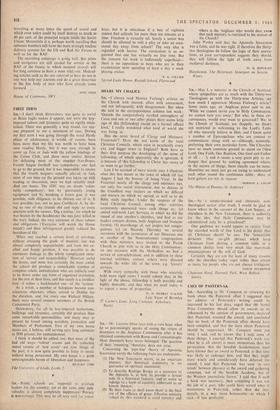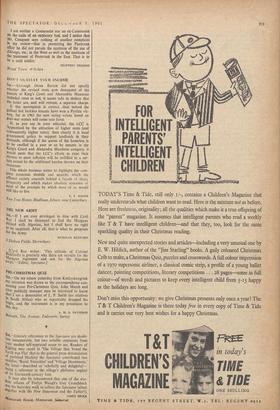USES OF PASTERNAK
SIR;—According to Mr Conquest, in reviewing his book about the Pasternak affair 1 suggested that no admirer of Pasternak's writing could he interested in his last days, urged that' ttrt Nobel Prize Committee should allow its awards to he influenced by the opinion of governments, declared that Pasternak resented the award, and concluded that no book of the Pasternak affair should have been compiled, and that the facts about Pasternak should be suppressed. Mr. Conquest must not twist. I said, and he knows that 1 said, none of these things; I asserted that Pasternak's work (i.e. what he is all about) is more momentous than his persecution, that the Swedish Academicians must have known that an award to Pasternak at that time was likely to endanger him, and that they might more wisely and considerately have deferred the award; I said that Pasternak was soon 'in two minds' between pleasure at the award and gathering contempt, 'not of the Swedish Academy, but of the Western journalistic furore.' I said that if such a book was necessary, then compiling it was not the job of a poet, who could have served what is momentous in Pasternak, rather than the inci- dentals, in a way more honourable—to which I stick—if less profitable. I am neither a Communist nor an ex-Communist on the nails of an expiatory bed, and I notice that Mr. Conquest says nothing of another complaint in my review—that in presenting the Pasternak affair he did not parade the nastiness of the use of Zhivago, etc., in the West as well as the nastiness of the treatment of Pasternak in the East. That is to be a cold soldier.
Broad Town GEOFFREY GRIGSON







































 Previous page
Previous page